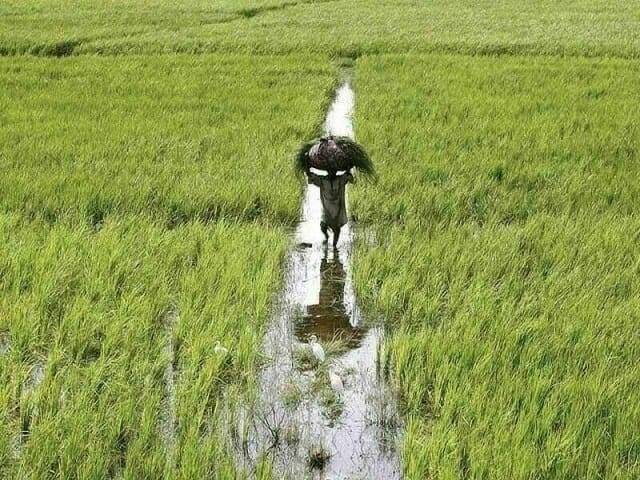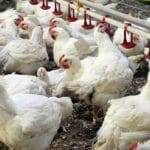Main Points In Hindi (मुख्य बातें – हिंदी में)
-
आईएमएफ की शर्तों का प्रभाव: राष्ट्रीय खाद्य सुरक्षा और अनुसंधान मंत्रालय (एमएनएफएस एंड आर) को आईएमएफ के ‘कोई सब्सिडी/समर्थन मूल्य नहीं’ की शर्त के कारण कृषि क्षेत्र की सुरक्षा में विफलता पर सांसदों, विशेष रूप से कृषिविदों से आलोचना का सामना करना पड़ा।
-
कपास और गेहूं की बुआई में कमी: कपास और गेहूं के बुआई क्षेत्रों में भारी कमी आई है, जिसके कारण आयात में वृद्धि की संभावना बढ़ गई है।
-
कातन गुणवत्ता और समर्थन मूल्य: एमएनएफएस एंड आर के सचिव ने स्थानीय कपास की गुणवत्ता, कर, शुल्क मुक्त आयात और अन्य समस्याओं का समाधान करने के लिए एक अंतर-हितधारक बैठक का आयोजन किया, वहीं सचिव ने संकेत दिया कि मंत्रालय ने कपास और गेहूं के समर्थन मूल्य बढ़ाने की सिफारिश की थी, लेकिन सरकार ने इसे अनदेखा किया।
-
खराब उत्पादन के आंकड़े: पाकिस्तान का कपास उत्पादन 14 मिलियन गांठ से घटकर मात्र 6 मिलियन गांठ रह गया है, जिससे गंभीर स्थिति का पता चलता है, जबकि वैश्विक उत्पादन में वृद्धि हुई है।
- समाधान की आवश्यकता: समिति के अध्यक्ष ने मंत्रालय के प्रदर्शन पर असंतोष व्यक्त करते हुए कहा कि केवल चर्चा नहीं, बल्कि प्रभावी समाधान की आवश्यकता है।
Main Points In English(मुख्य बातें – अंग्रेज़ी में)
Here are the main points from the article:
-
Criticism of Agricultural Ministry: The Ministry of National Food Security and Research (MNFS&R) faced heavy criticism from lawmakers, particularly agricultural experts, for failing to protect the agricultural sector amid the stringent condition of "no subsidies/support prices" imposed by the IMF.
-
Decrease in Crop Sowing Areas: There has been a significant reduction in the sowing areas for wheat and cotton, which is expected to lead to an increase in imports due to the lack of government support and incentives for farmers.
-
Commitment to Stakeholder Meetings: Secretary Ali Tahir reported that an inter-stakeholder meeting was held to address issues related to locally grown cotton, including tariffs, import concerns, and quality improvement. A follow-up meeting is planned to finalize recommendations.
-
Proposal for Support Price Increase Ignored: The ministry proposed increasing support prices for cotton and wheat, but these recommendations were not acted upon by the government, highlighting a disconnect between the ministry and the Federal Board of Revenue regarding stakeholder consultation.
- Dramatic Fall in Cotton Production: Pakistan’s cotton production has plummeted from 14 million bales to just 6 million bales, reflecting a more than 200% decrease. This situation was contrasted with the significant increase in global cotton production, emphasizing the dire state of Pakistan’s agricultural sector.


Complete News In Hindi(पूरी खबर – हिंदी में)
इस्लामाबाद: राष्ट्रीय खाद्य सुरक्षा और अनुसंधान मंत्रालय (एमएनएफएस एंड आर) को आईएमएफ की ‘कोई सब्सिडी/समर्थन मूल्य नहीं’ की कड़ी शर्त से कृषि क्षेत्र की रक्षा करने में विफलता के लिए मंगलवार को सांसदों, विशेष रूप से कृषिविदों की भारी आलोचना का सामना करना पड़ा। इस स्थिति के कारण गेहूं और कपास के बुआई क्षेत्र में उल्लेखनीय कमी आई है, जिसके परिणामस्वरूप आयात में वृद्धि होगी।
सैयद हुसैन तारिक की अध्यक्षता में राष्ट्रीय खाद्य सुरक्षा और अनुसंधान पर नेशनल असेंबली की स्थायी समिति की बैठक में यह मुख्य मुद्दा था। एमएनएफएस एंड आर के अधिकारियों ने स्वीकार किया कि आईएमएफ के साथ हालिया समझौते के तहत, सरकार को कपास सहित कृषि वस्तुओं के लिए समर्थन मूल्य की घोषणा करने से प्रतिबंधित किया गया है।
समिति के अध्यक्ष सहित सदस्यों ने कपास और गेहूं के बुआई क्षेत्रों में भारी कमी पर चिंता व्यक्त की, और बेहतर प्रोत्साहन की पेशकश करके बुआई क्षेत्रों को बढ़ाने के लिए प्रधान मंत्री और मंत्रिमंडल को मनाने में विफल रहने पर मंत्रालय के नेतृत्व पर सवाल उठाया।
कृषि क्षेत्र: चल रही मानसूनी बारिश का अब तक सकारात्मक प्रभाव पड़ा है
एमएनएफएस एंड आर के सचिव अली ताहिर ने समिति को सूचित किया कि स्थानीय रूप से उगाए गए कपास पर कर, कपास के शुल्क मुक्त आयात, जिनर्स के सामने आने वाली समस्याओं और गुणवत्ता में सुधार की आवश्यकता से संबंधित मुद्दों के समाधान के लिए एक अंतर-हितधारक बैठक आयोजित की गई थी। कपास का बीज. उन्होंने कहा कि सभी हितधारकों ने अपनी स्थिति प्रस्तुत की है और सिफारिशों को अंतिम रूप देने के लिए अगले सप्ताह एक और बैठक आयोजित करने का निर्णय लिया गया है।
सचिव ताहिर कृषि क्षेत्र, विशेष रूप से कपास और गेहूं के कम बुआई क्षेत्रों के संबंध में समिति के सदस्यों द्वारा उठाई गई चिंताओं से सहमत हुए। उन्होंने समिति को सूचित किया कि मंत्रालय ने कपास और गेहूं के लिए समर्थन मूल्य बढ़ाने का प्रस्ताव दिया था, लेकिन सरकार ने इन सिफारिशों पर कार्रवाई नहीं की। फ़ेडरल बोर्ड ऑफ़ रेवेन्यू (FBR) को हितधारकों के साथ परामर्श में शामिल नहीं किया गया था।
समिति के अध्यक्ष ने बताया कि पाकिस्तान का कपास उत्पादन 14 मिलियन गांठ से घटकर केवल 6 मिलियन गांठ रह गया है, जो 200% से अधिक की कमी है। उन्होंने इसकी तुलना वैश्विक कपास उत्पादन से की, जो 8 मिलियन गांठ से बढ़कर 37 मिलियन गांठ हो गया है, जो गंभीर स्थिति को उजागर करता है। उन्होंने मंत्रालय के प्रदर्शन पर असंतोष व्यक्त करते हुए जोर देकर कहा, “हमें केवल चर्चा नहीं, बल्कि समाधान की जरूरत है।” समिति के सदस्य केसू मल खील दास ने भी प्रधान मंत्री के दृष्टिकोण और निर्णयों को लागू करने में विफल रहने के लिए मंत्रालय के नेतृत्व की आलोचना की, जिसके कारण, उनके अनुसार, लोगों को पीड़ा हुई।
कॉपीराइट बिजनेस रिकॉर्डर, 2024
Complete News In English(पूरी खबर – अंग्रेज़ी में)
Islamabad: The Ministry of National Food Security and Research (MNFS&R) faced heavy criticism from lawmakers, particularly agricultural experts, on Tuesday for failing to protect the agricultural sector from the IMF’s strict condition of "no subsidies/support prices." This has led to a significant decline in the planting area for wheat and cotton, which will likely result in increased imports.
The main issue was raised during a meeting of the National Assembly’s permanent committee on food security, chaired by Syed Hussain Tariq. Officials from MNFS&R acknowledged that under the recent agreement with the IMF, the government is prohibited from announcing support prices for agricultural products, including cotton.


Committee members, including the chairman, expressed concern over the substantial decrease in cotton and wheat planting areas and questioned the leadership of the ministry for failing to persuade the Prime Minister and the cabinet to provide better incentives to boost planting areas.
MNFS&R Secretary Ali Tahir informed the committee that an inter-stakeholder meeting was held to address issues related to taxes on locally grown cotton, duty-free imports of cotton, challenges faced by ginners, and the need for improving the quality of cotton seeds. He mentioned that all stakeholders had presented their positions, and another meeting will be held next week to finalize recommendations.
Secretary Tahir agreed with the committee members’ concerns regarding the low planting areas for cotton and wheat. He informed the committee that the ministry had proposed increasing the support prices for cotton and wheat, but the government had not acted on these recommendations. Furthermore, the Federal Board of Revenue (FBR) was not included in the consultations with stakeholders.
The committee chairman noted that Pakistan’s cotton production has dropped from 14 million bales to only 6 million bales, over a 200% decline. He compared this to global cotton production, which has increased from 8 million bales to 37 million bales, highlighting the serious situation. Expressing dissatisfaction with the ministry’s performance, he emphasized the need for solutions rather than just discussions. Committee member Kesoo Mal Kheel Das also criticized the ministry for failing to implement the Prime Minister’s vision and decisions, which, according to him, has caused hardship for the people.




